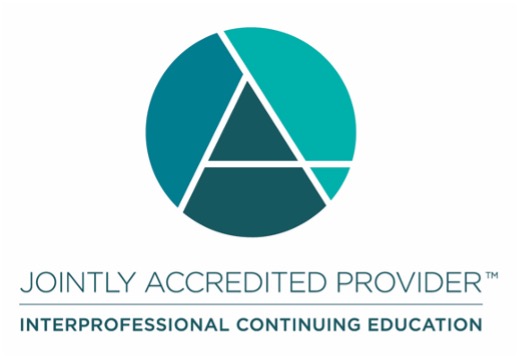Symposium Session: Freedom in Cooking: Empowering Nutrition and Health Through Accessible Kitchens
Disabilities can be temporary or permanent and this population is the one minority group anyone can become a part of at any time. In the US, 27% of adults (61 million people) have a disability and disability prevalence increases with age, as 10% of adults aged 18 to 44 have disabilities compared to 40% of adults aged 65 and older.1 The US population has seen a drastic increase in the senior population, with 18% of Americans over the of age 65 and a projection of 22% of Americans being over the of age 65 by 2040.2 These increases will likely be reflected in statistics that include the disabled aging population as well.
This data tells us that disabilities are extremely common, yet most dietetics practitioners lack knowledge and understanding of the disability culture they need to support the nutrition, health, and well-being of their disabled clients and patients. Specifically, our homes play a crucial role in shaping how we live, and our kitchens service our well-being and our emotional prosperity. Yet, many individuals with disabilities experience profound challenges due to the oversight of accessibility in residential design. Our homes should empower us and foster independence through thoughtful design practices. There remains a critical shortage of accessible housing for people with disabilities and the aging population as well. Inadequate home functionality poses safety hazards and limits independence, quality of life, nutritional intake, and societal participation.
In this presentation, dietitian Rene Pearson, and barrier-free design expert, Maegan Blau, will discuss the importance of residential accessibility, provide resources that dietetic practitioners can use to help create accessibility features in client’s kitchens and homes, and facilitate the ability to provide culturally-appropriate nutrition care for their aging clients and patients with disabilities.
This is not a webinar or course for purchase - this is a module for credit claiming for our 2025 Spring Symposium attendees and cannot be purchased or taken by non-attendees. These sessions are exclusive to our Symposium; however, the topics may be revisited in the future in the form of a webinar or self-study course.
Learning Objectives
After completing this continuing education activity, health care professionals will be better able to:
- Describe various disability statistics and their impact on the health care system and accessible housing.
- Explain the four types of accessible design and the differences between each.
- Identify the ways dietetic practitioners can incorporate inclusion, diversity, equity, and access, specific to people with disabilities and the aging population, into their daily practice.
References:
1. https://www.cdc.gov/disability-and-health/articles-documents/disabilities-health-care-access.html
2. https://www.ncoa.org/article/get-the-facts-on-older-americans/
Additional Information
Rene Pearson, RD, LDN, began her role as a disability advocate and public speaker at age 14 as the Muscular Dystrophy Association’s 2012 State Goodwill Ambassador for Illinois. Since then, she has continued advocating for disability-related accessibility in higher education. She was a panelist for disability pop-up engagements, a guest speaker for the Disability in Higher Education and Society course at Saint Louis University and helped co-found a campus disability support and student advocacy group. She increased access and awareness of disability-related dorm and travel needs for her college, and she also taught a class of dietetic interns about working with patients with disabilities.
Rene was a panel speaker for 2023 FNCE spotlight session "Promoting Inclusion, Diversity, Equity, and Access in the Dietetics Career Path for Individuals with Disabilities." In 2023, she completed her dietetic internship at the St. Louis Veteran Affairs Health Care System and passed the RD exam. Rene is an ICU and trauma care clinical dietitian at Hospital Sisters Health System (HSHS) Saint John’s Hospital in Springfield, Illinois since 2023.
Maegan Blau is the founder of Blue Copper Design, an interior design studio based in Arizona specializing in Barrier Free Design. Since establishing the company in 2018, Maegan has been a trailblazer in the interior design industry. With a personal understanding of disability and an unwavering passion for design, her niche redefines the standards and perceptions of what Barrier Free Design encompasses. Maegan’s design philosophy revolves around creating aesthetic, inclusive, and elevated homes so every body can live an empowered life.
DISCLOSURES
The faculty and planners of this educational activity have no relevant financial relationships with ineligible companies to disclose.
An “ineligible company” includes any entity whose primary business is producing, marketing, selling, re-selling, or distributing healthcare products used by or on patients.

In support of improving patient care, Great Valley Publishing Company is jointly accredited by the Accreditation Council for Continuing Medical Education (ACCME), the Accreditation Council for Pharmacy Education (ACPE), and the American Nurses Credentialing Center (ANCC), to provide continuing education for the healthcare team.
This activity will also award credit for dietetics (CDR CPEU).
RDs and DTRs are to select activity type 102 in their Activity Log. Sphere and Competency selection is at the learner’s discretion.
Available Credit
- 1.00 CDR

 Facebook
Facebook X
X LinkedIn
LinkedIn Forward
Forward